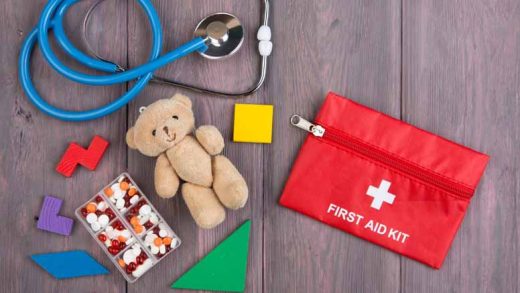The questions about how to improve concentration in kids persist among parents and educators who work with children during their vital preschool period. The modern fast-paced environment with numerous distractions requires parents to help young children develop strong attention capabilities even more. The development of attention muscles in your children can be achieved through proven strategies and interactive lessons.
Understanding Attention Span in Preschoolers:
Every preschool-aged child can focus their attention for 3 to 15 minutes according to their selected activity and age level. The built-in time constraints do not require you to be discouraged because attention functions like a trainable ability which needs practice and patience.
The Power of Play-Based Learning:
Playing proves to be the best method to help children develop their ability to focus. Learning tools known as attention games provide both entertainment and educational value for students during their studies. A child can easily learn to focus through enjoyable games like “Simon Says” combined with “Red Light Green Light” activities.
Creating an Environment That Fosters Focus:
A child’s ability to concentrate depends strongly on their living situation. You should designate an optimisation area for learning which contains minimal noise and no distracting objects. The space demands establishment as a functional environment rather than a sterile design. The space you design functions as a foundation for natural focus development of your child.
Movement and Mindfulness: A Perfect Partnership
The combination of physical movement together with mindfulness practice produces one of the most useful concentration exercises for kids. Kids younger than five need continuous movement during their day therefore attempts to force them to stay motionless generally proves ineffective. Instead, incorporate movement into learning activities. For example, try “Dancing Freeze,” where children dance to music and freeze in specific poses when the music stops – this helps develop both physical control and mental focus.
The Role of Routine in Building Attention:
Preschoolers gain improved concentration abilities through consistent daily activities. The understanding of daily expectations helps children stay focused on their work instead of spending time on curiosity about future steps. You should make a picture schedule to demonstrate how your child can understand their daily timing sequence.
Technology and Attention: Finding the Right Balance
While technology often gets blamed for shortened attention spans, certain educational apps and programs can actually help improve focus when used mindfully. The key is selecting age-appropriate content and setting clear time limits. Look for interactive programs that encourage problem-solving and creativity rather than passive consumption.
Nutrition’s Impact on Concentration:
What your child eats can significantly affect their ability to focus. A balanced diet rich in whole grains, proteins, and healthy fats provides the sustained energy needed for extended periods of concentration. Avoid sugary snacks that can lead to energy crashes and opt for brain-boosting foods like berries, nuts (if age-appropriate and allergy-safe), and vegetables.
Engaging Attention Games for Daily Practice:
Let’s explore some engaging activities that naturally enhance focus:
- “Memory Match” – Start with a small number of cards and gradually increase the challenge as your child’s skills improve. This classic game builds both memory and concentration skills while being highly engaging.
- “I Spy with Colors” – A variation of the traditional game where you focus on colours instead of specific objects. This helps children maintain attention while learning colour recognition: “I spy something blue… now something red…”
- “Sound Safari” – Have children close their eyes and identify different sounds in their environment. This activity helps develop auditory attention and can be played anywhere, from the backyard to the grocery store.
The Art of Strategic Praise:
When working on how to improve concentration in kids, the way we offer praise matters significantly. Instead of generic praise, focus on acknowledging specific efforts: “I noticed how carefully you sorted those blocks by colour” or “You kept trying even when the puzzle was tricky.” This type of specific feedback helps children understand what good concentration looks like and motivates them to maintain focus in future activities.
Making Daily Tasks into Concentration Exercises for Kids:
Transform routine activities into opportunities for building focus:
- Cooking Together – Even simple tasks like mixing ingredients or counting eggs can become exercises in concentration. The concrete nature of cooking helps maintain attention while teaching valuable life skills.
- Garden Activities – Planting seeds, watering plants, or identifying different leaves naturally encourage sustained attention while connecting children with nature.
- Sorting Laundry – Turn this household chore into a game of sorting by colour or type, making it an engaging activity that builds classification skills and concentration.
Understanding and Working with Different Learning Styles:
Children develop different individual patterns for interacting with their environment. The learning process works differently for each child since some require physical movement to absorb knowledge yet others need visual cues and a third group needs tactile activities. Observe your child’s natural inclinations and adapt attention games and activities to match their preferred learning style.
The Importance of Rest and Recovery:
Just as athletes need rest between workouts, young minds need breaks between periods of focused attention. Monitor your child with attention to signs which indicate they need either a change of activity or relaxation time because fidgeting together with frustration or loss of interest signals that they require a break.
Building Executive Function Skills:
The ability to focus wholeheartedly relates directly to executive functions which control mental planning abilities and task management functions with memory retention. Several activities aimed at building concentration exercises for kids that we have discussed contribute to developing essential skills which create academic readiness for future education.
Creating a Supportive Community:
Communicate your methods and findings regarding childhood development techniques to both parents and school personnel. Educational strategies that succeed for one learner often succeed similarly for another student so building a supportive community helps students receive fresh ideas and encouragement when hard times arrive.
Looking Ahead: Preparing for School Success
Successful academic performance in the future depends on attention skills that children establish in their preschool years. Your patient implementation of these strategies helps your child develop skills which will support their educational development across their entire learning journey.
A Journey of Small Steps:
Students at this age level require gradual development of attention skills through stable habitual advancement. Recognise what your child accomplishes while maintaining persistence through struggles and understanding that children grow independently. Playing with your child while establishing routine practices along with specific activities will develop children’s attention skills which in return will benefit their academic and real-world successes.
We at Kangaroo Kids believe that creating ideal students who remain perfectly still throughout the day is not what matters because our objective is building pupils who actively participate in tasks while remaining curious and focused on their areas of interest. When you incorporate these practices into your most important tasks each day you help your child strengthen foundational abilities yet preserve their pure early childhood enjoyment.









